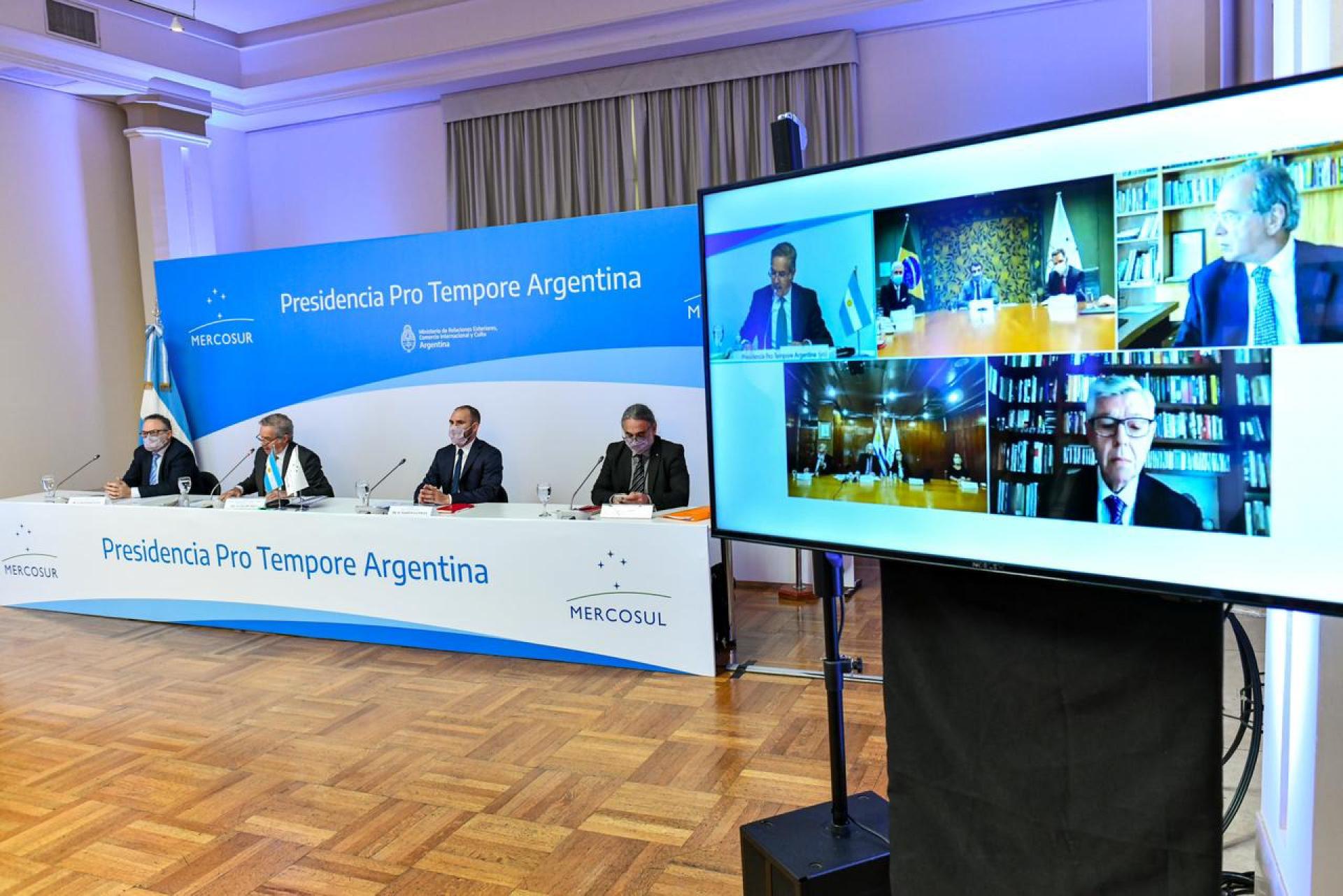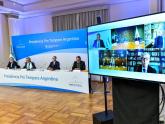Today, Foreign Minister Felipe Solá chaired the virtual 12th Extraordinary Meeting of the Common Market Council, convened by Argentina under its Presidency Pro Tempore of the regional bloc, and stated that “we have put forward a proposal for an average reduction of the Common External Tariff, but using a tariff segmentation methodology in agroindustrial and industrial products and capital, IT and telecommunication assets, with five links differentiated by the degree of product processing, resulting in a recommendation for a higher reduction on inputs and raw materials and a lower reduction on finished goods.”
In a meeting where agreements and disagreements among the Member States were expressed, Argentina proposed, with regard to the Common External Tariff revision, “reaching consensus this semester on the proposals of the Member States for the revision of the CET,” as Solá stated from the Palacio San Martín, joined by the Ministers of Economy, Martín Guzmán; Productive Development, Matías Kulfas and Agriculture, Livestock and Fisheries, Luis Basterra.
With regard to the relations with other countries or blocs, Solá noted that Argentina has a proposal to “instruct the Common Market Group coordinators so that at the end of the semester they can put forward a proposal for an external negotiations plan identifying the priorities on the external agenda of Mercosur and the plan of specific modalities of offers and disciplines, and so that they make a full report on the status of the different negotiations.”
In order to advance the tariff and relations agenda, on the motion of the Argentine Foreign Minister, the delegations of Brazil, Paraguay and Uruguay agreed with Argentina to hold an in-person meeting of Ministers in Buenos Aires, following the protocols required due to the pandemic.
Solá was also joined by the Deputy Foreign Minister, Pablo Tettamanti; the Secretary for International Economic Relations, Jorge Neme; the Chief of the Private Office of the Ministry of Foreign Affairs, Guillermo Justo Chaves; the Undersecretary for Mercosur and International Economic Negotiations, Rossana Surballe, and the Undersecretary for Issues of the Americas, Juan Valle Raleigh.
Solá stated: “We need to think about the capacity of the different sectors of the economy to endure a reduction of the Common External Tariff (CET), and the implications of a unilateral reduction of the CET with regard to the external negotiations (some of which have started but have not been completed) that Mercosur is carrying out with seven groups made up of 36 countries. We are also conducting negotiations with Korea, Singapur, Canada, Israel, and we think that the CET reduction must take place during the negotiations and as a result of them.”
“It’s not that the world is expecting Mercosur to reduce tariffs but every country negotiating with us will ask us to do so,” the Foreign Minister stated. He added: “It is not fair to offer, as Mercosur, the same reduction to sectors in different positions. The starting point is not equal in terms of competitive capacity, there are important differences. That is why our proposal is differentiated and not linear.”
Minister Guzmán in turn stated: “We should have an in-depth discussion as a bloc about how to achieve prosperity for our countries. Prosperity, to us, is a path to development that includes productive dynamism and more competitiveness and productivity. But, in particular, it needs to benefit each one of our citizens. That is, economic growth must be inclusive, and the benefits provided by that growth must be distributed equitably.”
Guzmán added: “Argentina shares some of the views of the other members of the bloc and differs in others, but it is trying to find a balance that enables more prosperity and promotes responsible behaviour. We think that not moving forward and not doing anything would be counterproductive. We are aware of the differences, but we also see points of agreement, and it is important to move forward based on those points of agreement to build a Mercosur that is more modern and better adapted to the development needs of our countries.”


